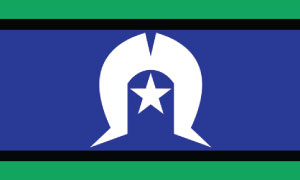Other Representation Services are services in which the Centre takes carriage of a legal matter in an ongoing, representative capacity, but where the Service does not fit within the definition of a Court/Tribunal Representation Service or a Dispute Representation Resolution Service. In other words, it is representing a Service User in a legal dispute in which there are no court, tribunal or dispute resolution proceedings.
It is common for Centres to take on a matter representing a Service User at early stages when the issue is simply a dispute between the Service User and the other party, and there is no expectation that court, tribunal, or dispute resolution proceedings would be required. Many CLCs and Indigenous FVPLS are keen to intervene in matters at as early a stage as possible, in order to head off the possibility that the Service User will have to be involved in more formal, costly, and lengthy dispute resolution processes or court/tribunal proceedings.
If it is not possible to resolve the legal dispute at this early stage, and the matter proceeds through to one party applying to or commencing in a court, tribunal or alternative dispute resolution forum, the question arises as to whether the Other Representation Service should then simply be changed to become a Court/Tribunal or Dispute Resolution Representation Service, or if the Other Representation should be closed and a new type of Representation Service opened as relevant.
After consultation, CLCs Australia has determined that the appropriate course of action is for the Other Representative Service to be closed and a Court/Tribunal or Dispute Resolution Service opened.
The main reason for separating Other Representation from Court/Tribunal Representation for the one legal matter is that it more accurately captures the very different nature of a legal matter when there is no litigation pending, compared to a legal matter focused on litigation – and it allows legal assistance providers to understand what amount of their work is in this early intervention space.
Many Centres have a Casework Policy that states they will act for a Service User in early stages of a legal dispute, but that they will reconsider the decision at the point that it proceeds to a court / tribunal or other dispute forum. The options for the Centre at this point are to:
If the Centre decides to continue acting for the Service User, and the matter is changed from Other Representation Service to Court/Tribunal Representation Service, the Other Representation Service is never “counted” for reporting purposes (as Ongoing matters are only counted when closed). This then operates to hide the substantial and unique work that community legal centres undertake in this early intervention work, that is, acting for Service Users when they are in the early stages of a dispute, prior to there being any involvement in formal court, tribunal or dispute resolution forums. This would be recorded as one count of a Court/Tribunal Representation Service, which would be considered the same as a Court/Tribunal Representation Service provided by (for example) a Legal Aid Commission or an Aboriginal or Torres Strait Islander Legal Service, which are primarily litigation based services.
If a Service User is represented by a Centre in more than one ongoing matter (that is, with different legal problem types and/or different parties), each ongoing matter is counted as a separate Other Representation Service. Again, any different subproblem types may be recorded as service characteristics, if appropriate.
All services provided in relation to a matter are counted together as one Other Representation Service. For example, Information, Legal Advice, and Legal Tasks are considered to be part of the Other Representation Service and are not counted separately (in CLASS, interactions with the Service User can be recorded as Actions against the Other Representation Service).


Community Legal Centres Australia acknowledges the traditional owners of the lands across Australia and particularly acknowledges the Gadigal people of the Eora Nation, traditional owners of the land on which the Community Legal Centres Australia office is situated. We pay deep respect to Elders past, present and emerging.

Community Legal Centres Australia is a proudly inclusive organisation and an ally of the LGBTIQ+ community and the movement toward equality.
ABN 67 757 001 303 ACN 163 101 737
Disclaimer | Privacy Policy
© Community Legal Centres Australia 2022 | Designed by DropIn Solutions